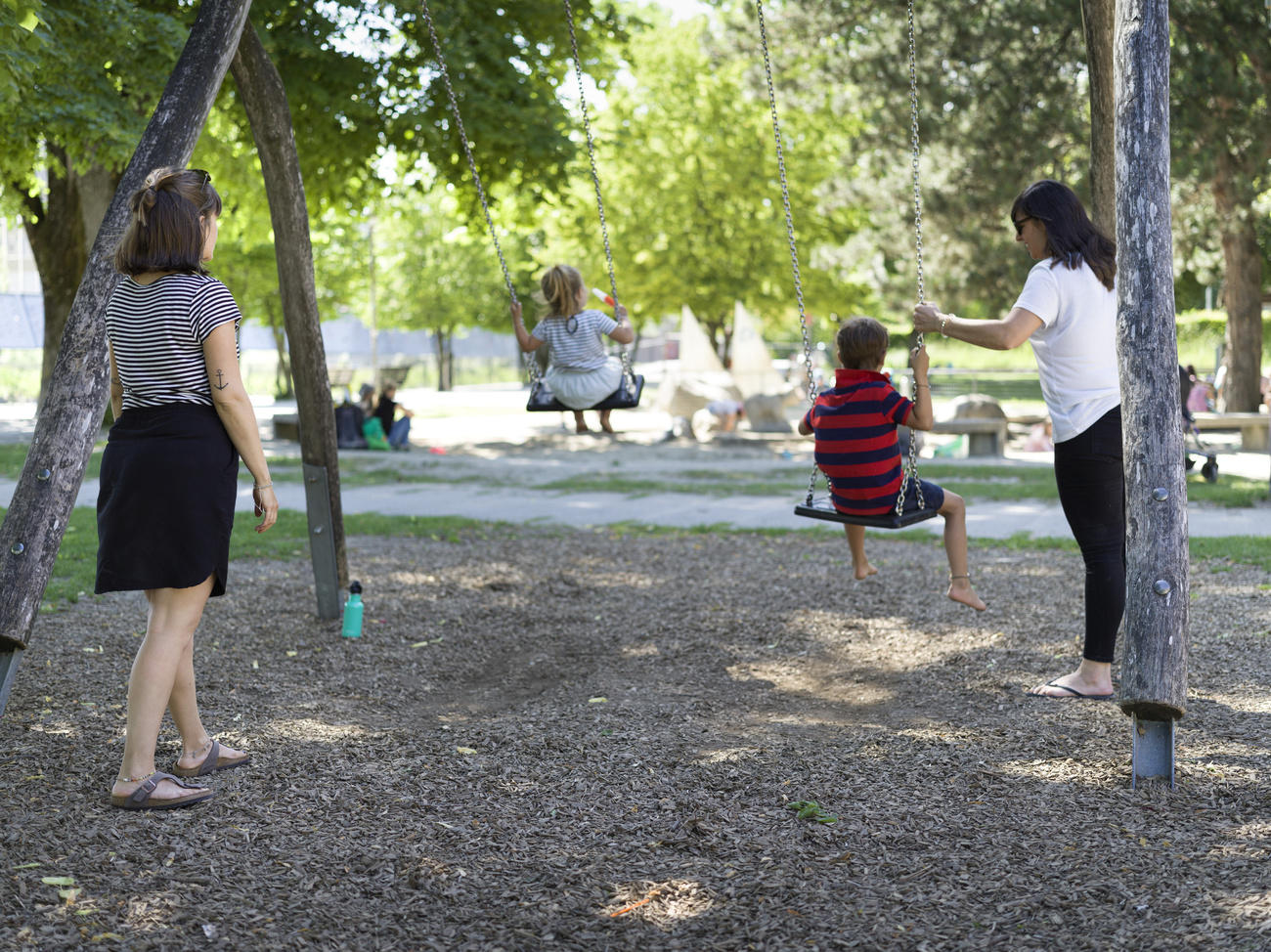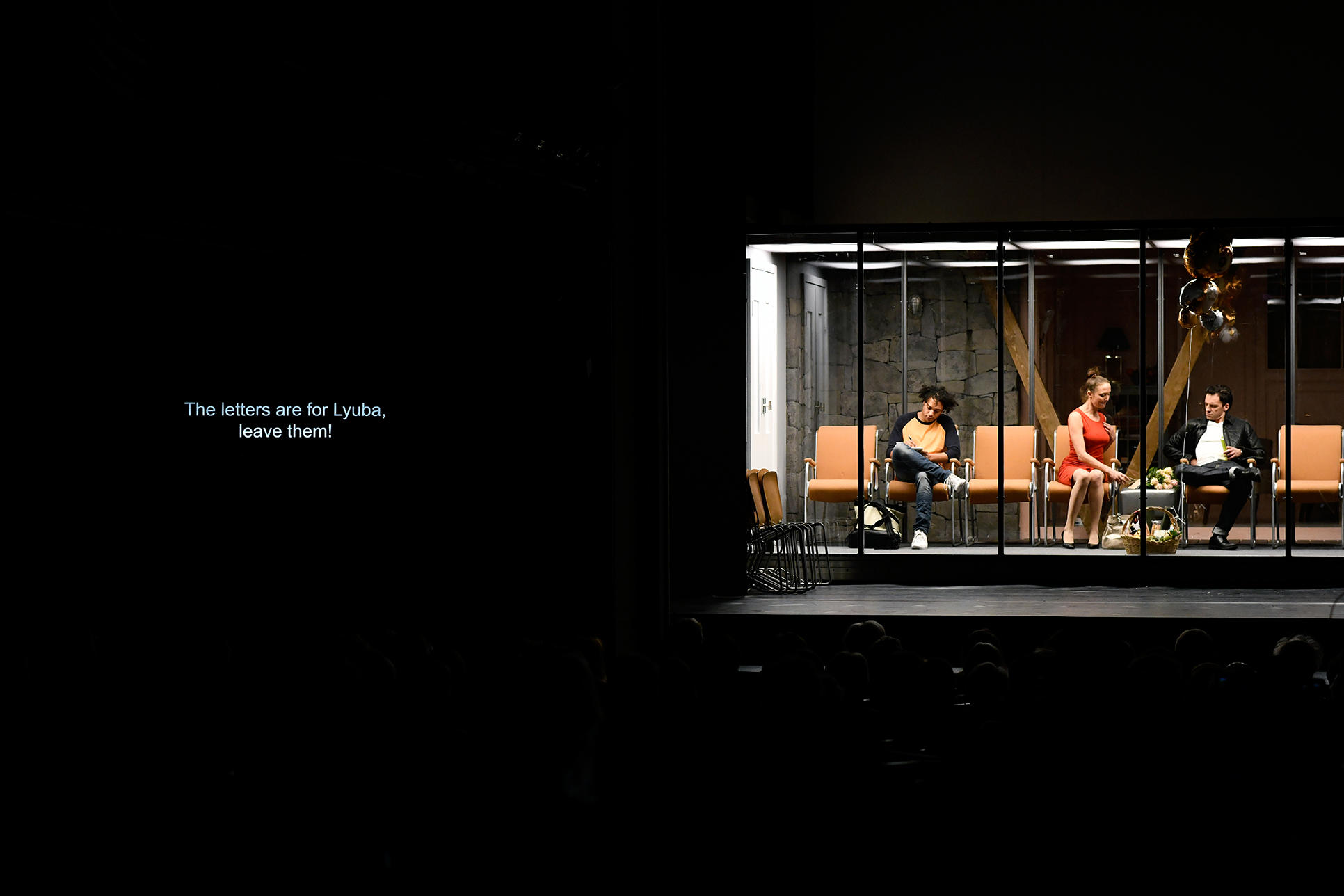Swiss artists keep up morale despite devastating pandemic

Cancelled festivals, closed museums, theatres and cinemas – the arts world has been crippled by the coronavirus. Four leading names of the Swiss cultural scene explain the impact of the pandemic on the institutions they run and on social life in general.
A concert hall is not a bank. A festival doesn’t operate like a multinational corporation – it sometimes relies on volunteers for its logistical requirements. Some cultural events live solely on their takings, without any financial aid from their city or municipality. So when there is no audience it is therefore fatal.
This highlights the fragility of a sector which has been on the ropes since the beginning of March and especially after the government announced emergency measures such as banning gatherings of initially more than 50 people and then five. Nevertheless, despite the current despair, faith in the future remains.
Nicolas Stemann, artistic director of the Schauspielhaus Zurich

Theatre works on the principle of sharing. A play can’t be performed without the physical presence of the audience. So what I miss is that co-existence, which is the foundation of every society, of which we are deprived at the moment. The Schauspielhaus will be closed until April 30. The financial losses are dramatic. How high are they? I don’t know yet. I can, however, measure the moral loss.
One of the programmes planned for March was Das Weinen (Crying), a play by Dieter Roth, directed by Christoph Marthaler from Zurich. The subject is isolation and it’s set in a pharmacy. So the show finds itself transplanted directly onto the current health situation. It’s a coincidence, but it makes me think that Marthaler is a visionary. I’m very sad not to be able to put on the play now. But I tell myself that out of something bad some good will come: after the crisis, the public will without doubt be more aware of the vital role of theatre in society.
Thierry Jobin, director of the Fribourg International Film Festival

The 34th edition of the festival, which should have opened on March 20, has been cancelled. We replaced it at the last minute with a shortened format, spread over the rest of the year. It’s better than nothing, but we’re still incurring heavy financial losses. The event was the first to be affected by the coronavirus, and I hope it won’t be the last sector the state thinks about when life resumes.
Having said that, it took this crisis to realise how valuable the harmony of an event is. A festival is like a menu whose different dishes have to be synchronised. We’ll now probably eat the starter in December, and the meat won’t be accompanied by crunchy vegetables. And since we’re talking about cooking, I’ll add that we’ll be keeping nice and warm one of the festival’s sections, “New Territory”, devoted in particular to Asian and African cinema.
I hope to roll it out in autumn. Under no circumstance would I want to fail one of our missions: to introduce the audience to filmmakers from countries supported by the OECD (Organisation for Economic Co-operation and Development). The pandemic has taught me that culture is essential to democratic ideals.
Vincent Baudriller, director of the Théâtre de Vidy, Lausanne

The sudden interruption of the season has been violent – in short, it’s a break with society. What a theatre offers is the opposite of what this pandemic is producing, namely cutting social ties. The health crisis highlights how dysfunctional our world is. Its magnitude will have an impact on the imagination of artists in the coming months.
I know playwrights who are already working on this subject. Crises should serve as an indicator to rectify ways of thinking and acting. When the theatre reopens, we’ll certainly adopt new practices. There will be many aspects to deal with, including the financial issue. Like everyone else, we’re recording heavy losses. Direct losses with all the income generated by our shows, both at Vidy and on tour abroad. And the indirect ones with creative projects for the next three or four years. What will it be like? We’ll see what happens. Right now, our computers are whirring away nonstop.
Guillaume Potterat, co-director of the Cully Jazz Festival, Vaud
Unlike the cancelled film festivals, ours won’t be reborn this year in a different format. The concerts we schedule are not streamed like films or made as podcasts – those media don’t correspond to our values and even less to the demands of our audience. So there you have it, for us the pain is financial – all the more so as the state subsidy allocated to us is very low.
However, this crisis has made us discover a beautiful thing: solidarity. The people of the region have been very generous towards us. Many of our audience members didn’t want to get their tickets refunded. Others have donated a total of CHF30,000 ($30,700). In future, the municipality will certainly help us. Let’s just say that we’re confident of resuming the festival next year. Switzerland is a rich country, its culture is not going to stop because of a virus.

More
Coronavirus: the situation in Switzerland
(Translated from French by Thomas Stephens)

In compliance with the JTI standards
More: SWI swissinfo.ch certified by the Journalism Trust Initiative












You can find an overview of ongoing debates with our journalists here . Please join us!
If you want to start a conversation about a topic raised in this article or want to report factual errors, email us at english@swissinfo.ch.